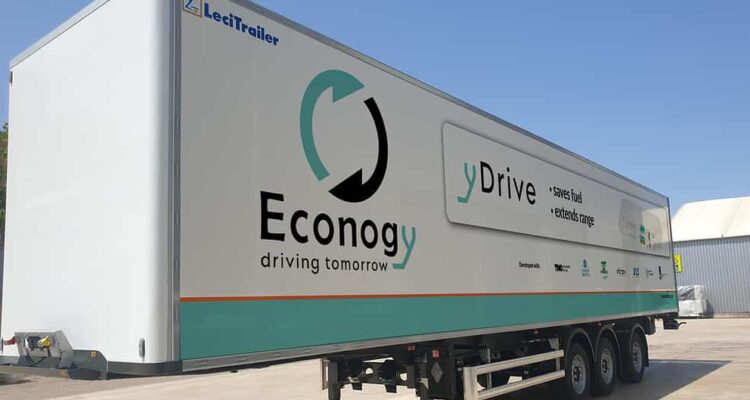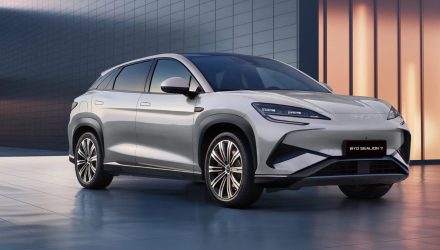Conventional road freight transportation can save up to 20 per cent on fuel consumption if it starts using electrically powered trailers, it has been claimed.
A consortium of six organisations is joining forces to develop an electric powertrain for semi-trailers in road freight transport. Under the name yDrive, the parties want to develop propulsion technology that will further reduce fuel consumption and contribute to the reduction of CO2 emissions and harmful substances.
Road freight transportation is an important component in the transition to zero emission transport. Consequently, the trucking industry is fully committed to the electrification of its fleet. This is of great importance to ensure that emissions are reduced and climate targets are met. In addition to the electrification of trucks, the industry is looking at how conventional road freight transport with diesel trucks can be made even more sustainable and cleaner. This is essential for the transition period.
The yDrive project aims to electrify a conventional trailer. yDrive consists of an electrically driven axle, a rechargeable battery pack, a kingpin sensor, and a smart controller that works both with and without communication with the truck.
This technology creates a hybrid combination, through which braking energy is regenerated and stored in a trailer battery during deceleration and downhill events. During accelerating, the energy from the battery is used to drive the trailer. This provides extra boost to help the truck move from its place and thus consume less fuel. As a result, the truck can be equipped with a smaller engine. Additionally, yDrive can serve as a range extender for BEV or FCEV trucks.
Climate Benefits
This technology offers a great potential for savings. The objective of this project is a CO2 and fuel reduction of 20% in city distribution, 15% in regional distribution, and 10% in long-distance transport. Every year, an average of 12,500 new trailers are registered in the Netherlands and more than 200,000 in Europe. The total fleet in Europe exceeds 3 million trailers. Transportation of goods through road freight transport is responsible for approximately 9% of global CO2 emissions. If the entire fleet were to be fitted with yDrive, more than 1% of total CO2 emissions could be reduced, whilst the product would pay for itself within the economic lifetime of the trailer.
Martin van Willigen, Founder and Managing Director at Econogy and initiator of yDrive points out that heavy commercial vehicles are responsible for more than 6% of total greenhouse gas emissions in Europe. “To meet Europe’s ambitious goal of Net Zero by 2050, heavy commercial vehicles must reduce their carbon footprint by 45% this decade and as much as 90% by 2040 – largely by going electric.”
Rob van Gils, Managing Director at DLS-Drive Line Systems, says a so-called LTO (Lithium Titanium Oxide) battery chemistry was chosen. “This chemistry makes it possible to discharge the battery very quickly when the vehicle demands maximum energy and recharge ultra-fast during the regeneration process when braking. Because of the many braking movements, this allows us to work with a tiny battery for urban and regional distribution. Another advantage is the ultra-long service life with over 20,000 cycles, exceeding the trailer’s life.”
Consortium
The consortium consists of Econogy, Drive Line Systems (DLS), V-Tron, TNO, THT New Cool, and RAI Association.







